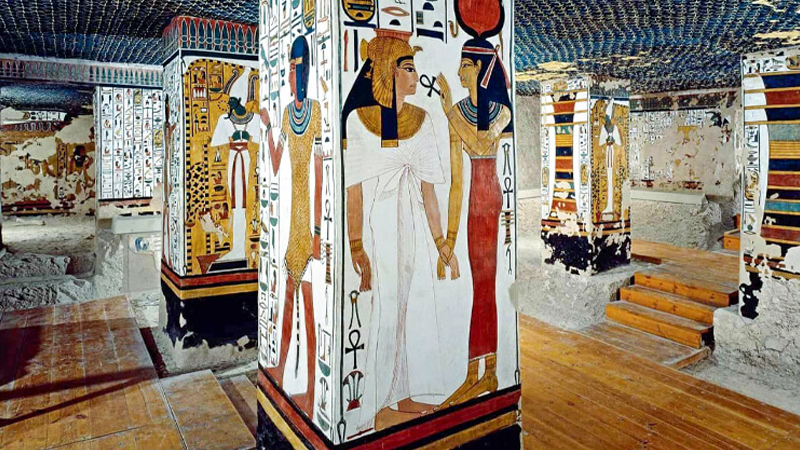Cleopatra VII Philopator is a name that rings a lot of scenes and thoughts about her. Her life has been a point of study for historians and that of other authors for long because it contained both political intrigues and love incidents laced together by dramatization events. Here we go deeper with Cleopatra’s biography finally including what she has left behind for posterity.
Cleopatra was born in 69 BCE as the daughter of Ptolemy XII Auletes who was the ruler of Egypt. With that she belonged to the Ptolemaic dynasty, which had Greek origins. As it was established following the death of Alexander the Great. Cleopatra ascended to the throne in 51 BCE, initially co-ruling with her younger brother Ptolemy XIII, who was still a child at the time. During her reign there were many hurdles both political and personal that were encountered. Such as fights for succession among family members and wider geopolitical aspects concerning the Mediterranean basin.
Cleopatra’s Characteristic
Cleopatra VII was a remarkably astute and charismatic leader, renowned for her intelligence, political acumen, and persuasive abilities. Fluent in several languages, she was skilled in diplomacy and strategy, adeptly navigating the complex power dynamics of her time. Cleopatra’s charm and beauty were often highlighted, but it was her shrewdness in forging alliances with powerful Roman figures like Julius Caesar and Mark Antony that defined her reign. Her ability to blend political savvy with personal allure made her one of history’s most compelling and influential figures.

Cleopatra’s Political Acumen
Cleopatra is frequently remembered for her remarkable political insight. In the midst of the disturbance of Roman expansion. She’s a cunning political leader who aspired to restore Egypt’s former glory. Her reign was characterized by attempts to centralize power and stabilize her country.
In order to achieve her aims, Cleopatra formed essential alliances with powerful Roman dignitaries. These proposals had significant influence on her political strategies with Julius Caesar and Mark Antony. She had an affair with Julius Caesar starting from 48 BCE when she went to visit him at Rome, thus giving birth to a child called Caesarion (Ptolemy XV). Following Caesar’s assassination in 44 BCE. Cleopatra went back home but later allied herself with Mark Antony, one of the greatest generals in Rome as well as the Second Triumvirate member.
The Fall of Cleopatra
The final chapter of Cleopatra’s life is one of tragedy and drama. It was In 30 BCE where the Octavian’s forces invaded Egypt. Facing imminent defeat, Cleopatra and Antony took their own lives. It was believed that Antony thought Cleopatra was dead, fell on his sword. Cleopatra, in a desperate bid to escape captivity, is said to have died by suicide, traditionally believed to be through the bite of an asp, although the exact circumstances remain a subject of debate.
Cleopatra’s death marked the end of the Ptolemaic rule in Egypt and the beginning of Egypt’s transition into a Roman province. Her legacy, however, endured long beyond her death.

Legacy of Cleopatra
Art, literature, and popular culture have immortalized Cleopatra. She is the inspiration behind many works including Shakespeare’s tragic play Antony and Cleopatra; besides, she is still admired for her beauty, intelligence, and political acumen in this world.
The legacy she leaves behind is complex. Cleopatra was an exceptional woman who navigated through the murky waters of ancient politics with an astonishing skill and charisma. Furthermore, history cannot deny that she has remained for ages among remarkable individuals who intrigue and command respect.

Formidable as she was Cleopatra VII is still one of the most puzzling figures in world history. Her reign was both extravagant and tragic providing a unique insight into Egyptian and Roman political structures alongside their cultural practices. Cleopatra lived through such times that demonstrated how intelligent she was despite whatever challenges it may have brought upon her reign, hence allowing us to keep remembering her even today.



0 Comment